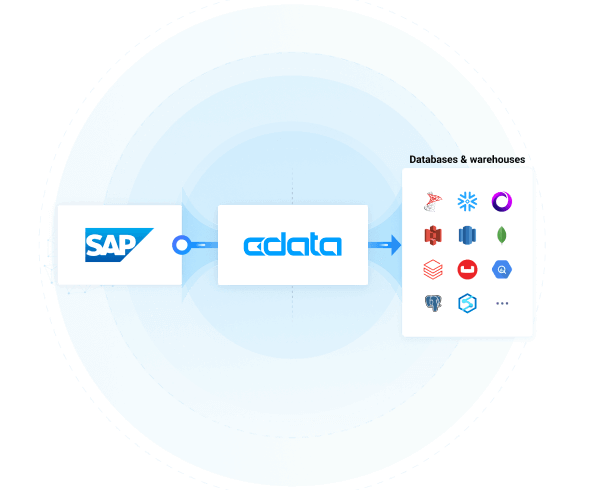New Enterprise-Grade Data Exploration and Security Features in CData Connect Cloud
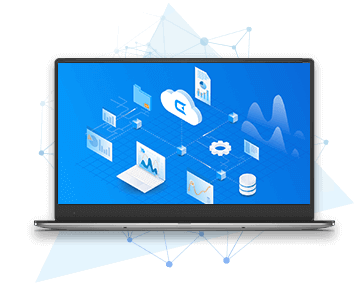
Earlier this year, we released CData Connect Cloud, our modern Data Connectivity as a Service platform. Our engineering team is constantly working to update the modern data integration platform to add connectivity to more data sources – including over 125 out-of-the-box connectors and counting – as well as improve the user experience based on customer feedback.
In our latest product update, we are adding several new data exploration and security features designed to improve the onboarding experience, providing you with customizable views into your enterprise data, and giving IT administrators more control over who is accessing data.
Improved Onboarding Experience
The latest update to CData Connect Cloud includes a modernized onboarding experience, giving new users more information about Connect Cloud right from the start through an improved look and feel. It's now clearer than ever what you're signing up for and how to create your account!
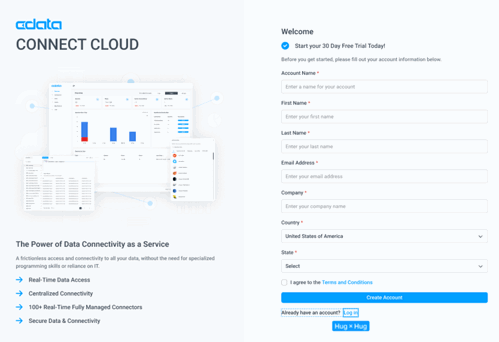
Customized Views into Your Data
CData Drivers and Connectors have long included query federation capabilities (querying data across different sources) and the ability to generate service-specific custom reports, like getting the expenses by vendor from your QuickBooks Online account. Now, those features are available in CData Connect Cloud, surfaced as Derived Views, Saved Queries, and Custom Reports. You can read about each of the features below or read our Knowledge Base article for a technical tutorial on how to use the features.
Derived Views
With Derived Views, customers can create and share views into their data crafted from custom SQL queries built in the Data Explorer. Once created, the views can be accessed by users across an organization both in the Connect Cloud interface and from client applications.
For example, you could save the following query as "DeletedAccounts"
SELECT * FROM [Salesforce1].[Salesforce].[Accounts] WHERE Deleted = 'true'
Once saved, other users can use a simpler query to get the same results:
SELECT * FROM [CData].[DerivedViews].[DeletedAccounts]
Derived Views allow users to save time by avoiding repeated queries, easily generate one-query reports (which can include SQL complexities like JOINs, aggregations, grouping, and more), and simplify access for users not as familiar with SQL. Derived Views also supports query federation, meaning users can query data spread across multiple sources from a single query.
Saved Queries
Like Derived Views, Saved Queries are created using custom SQL queries in the Data Explorer. Saved Queries provide a place for users to store and share common, repeated queries across an organization and allow users to save work-in-progress queries.
An example of a Saved Query could be a templated query designed to help users who are less familiar with SQL:
SELECT * FROM [Salesforce1].[Salesforce].[Opportunity] WHERE LastModifiedDate > '09/30/2022' AND LastModifiedDate <= '12/31/2022'
The query above provides a template for any user interested in querying their opportunities from Salesforce that were modified between the given dates. Since Saved Queries are available across an organization, users can copy and paste them for use in their own client applications or to create new Derived Views.
Custom Reports
As we mentioned earlier, the ability to generate service-specific reports has been a long-standing feature of our connectivity solutions. Many of the services for which CData provides connectivity allow users to generate custom reports that are not available by default. The custom reports provide detailed views into data and are often multidimensional in nature, offering the opportunity for deeper insights into data.
Custom Reports are currently available for QuickBooks Online, NetSuite, Google AdWords, and Google Analytics, with more sources planned in the future.
To generate a Custom Report for a supported data source, create a new connection to the data source and click the Custom Reports tab in the Connection settings. When you select a report, it is made available as a new view from the Connection.
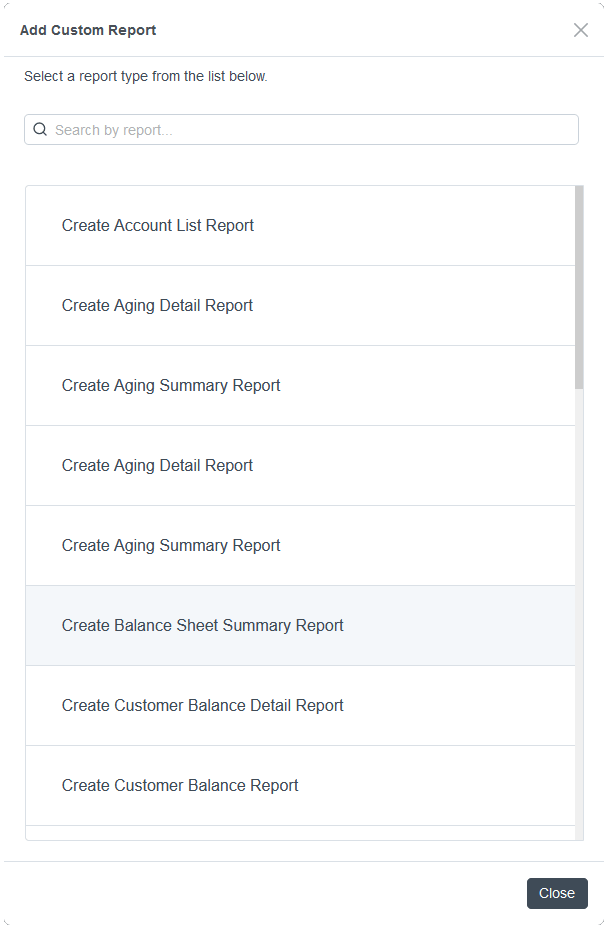
Creating a Balance Sheet Summary Report from a QuickBooks Online connection creates a new view that can be queried using a simple SQL query, both within Connect Cloud and from external client applications:
SELECT * FROM [QuickBooksOnline1].[QuickBooksOnline].[Balance Sheet Summary]
Watch a short demo video:
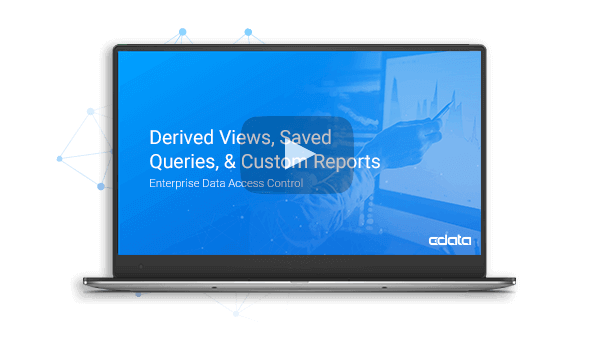 Derived Views, Saved Queries, & Custom Reports
Derived Views, Saved Queries, & Custom Reports
Enhanced Security and Data Access Control
One of the best features of CData connectivity solutions is the user-based permissions enabled at the connection level for each service. Now, administrators can configure CData Connect Cloud to customize data access for each connection based on the user connecting by enabling User Defined Credentials.
In addition to User Defined Credentials, CData Connect Cloud also supports Single Sign-On (SSO) for larger organizations that need more control over who has access to Connect Cloud and how they authenticate. We provide an overview of the new features below and you can read our Knowledge Base article for a detailed tutorial of how to implement and use the features.
User Defined Credentials
Connect Cloud already supports some level of permissions through the distinction between Administrator users (those with permission to create and edit connections and add and manage users) and Query users (those with permission to query established connections). With our new User Defined Credentials, Administrators can require Query users to provide their own service-specific credentials in order to access data. This means that users have access to the same data through Connect Cloud that they do when authenticating directly with the service.
For example, a sales manager typically has more visibility into a Salesforce account than an individual account representative. The same permissions can now persist within a single connection to Salesforce in Connect Cloud.
Single Sign-On
For organizations with many users, managing access to SaaS offerings is critical. With support for SSO in connection cloud, organizations will sign into their Connect Cloud account through their chosen SSO provider instead of using Connect Cloud credentials (typically email address and password). CData Connect Cloud supports the following SSO providers:
- SAML
- OpenID Connect
- Google Workspace
- Microsoft Azure AD
- Active Directory Federation Services (ADFS)
- Active Directory/LDAP
- Ping Federate
With support for SSO, an organization can manage access to their Connect Cloud service with the same system they are already using to manage its users for other services.
Watch a short demo video:
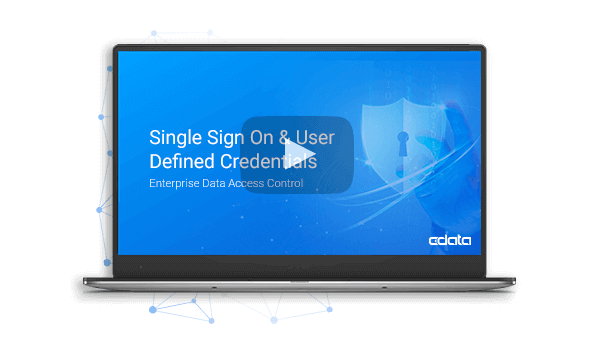 Single-Sign-On & User Defined Credentials
Single-Sign-On & User Defined Credentials
The CData Difference
The recent updates to CData Connect Cloud help drive our vision of helping every user in an organization get access to their enterprise data while easing the burden on IT resources. Our Knowledge Base articles provide a detailed view into using the new features, whether you are interested in customized views into data or enhanced access and security.
If you aren't a Connect Cloud user yet, sign up for a free trial and start working with your cloud data in your preferred cloud tools and applications today.
Or, reach out to the CData team for a personalized demo and learn how to better connect, integrate, and automate your data today.



